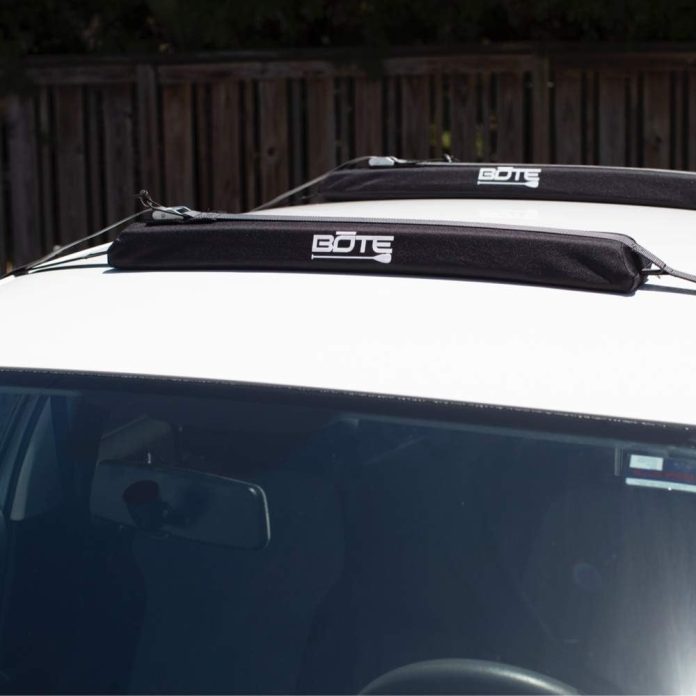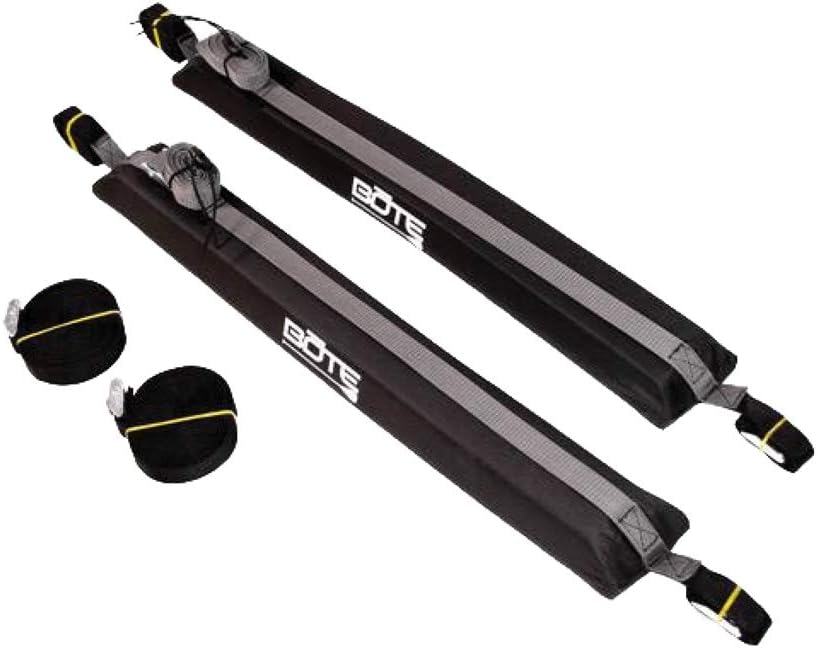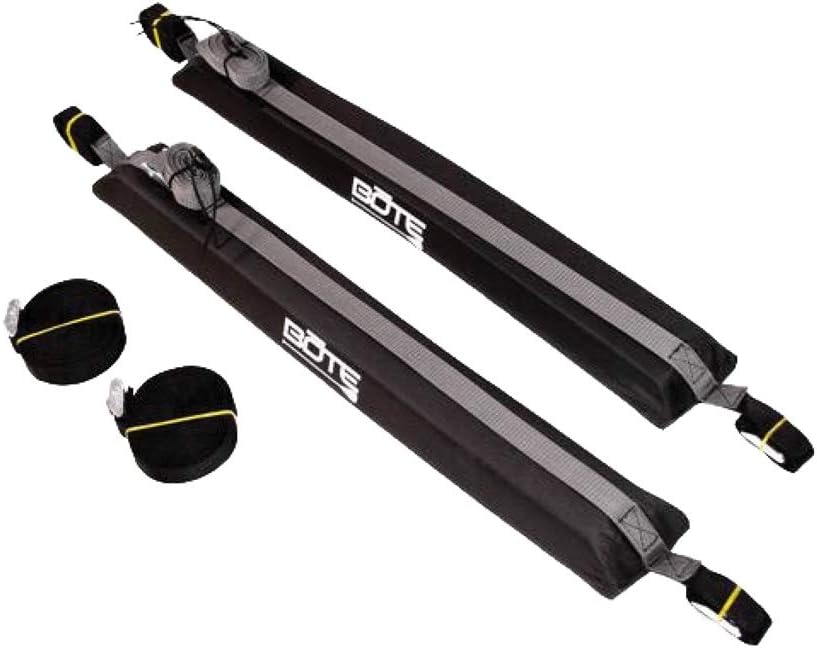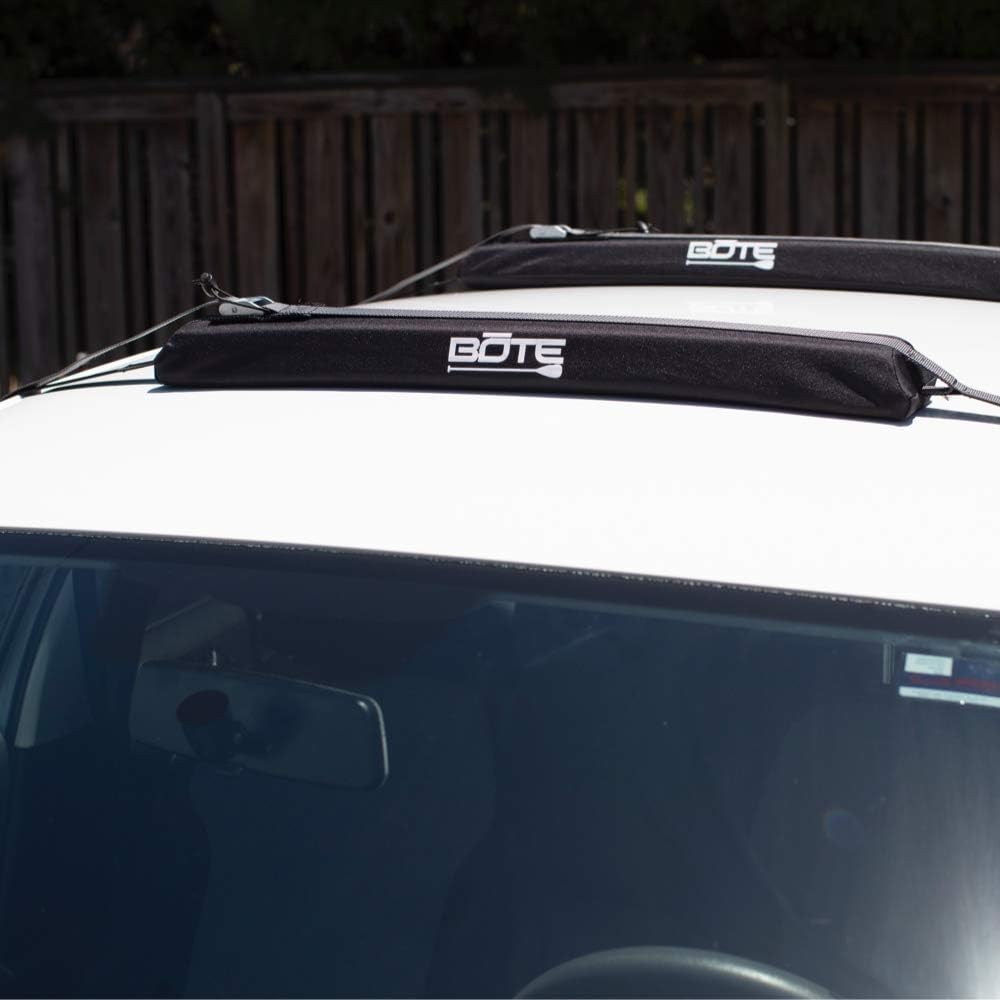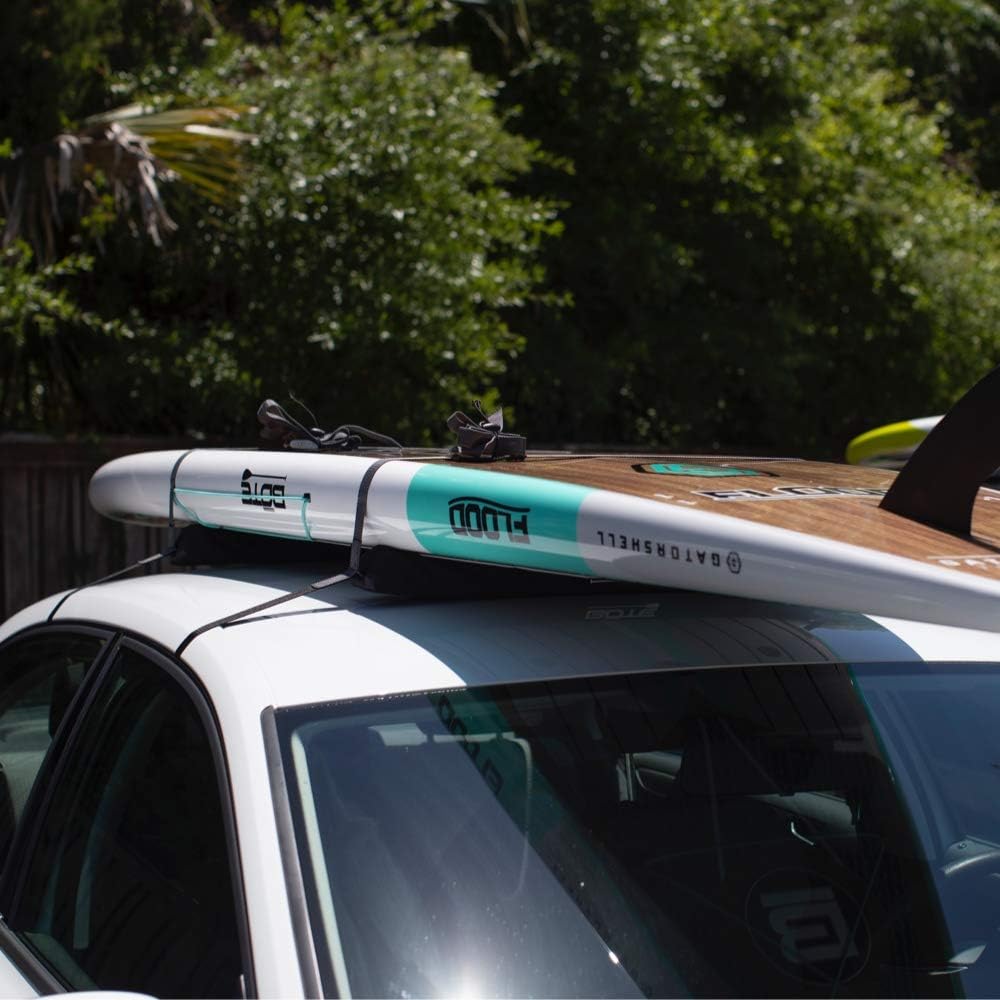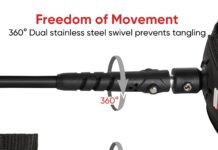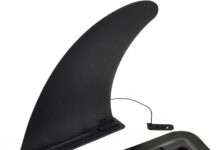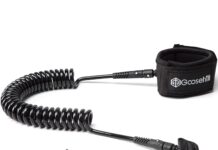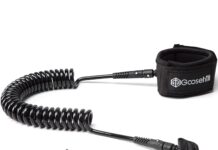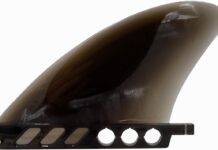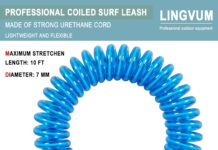Looking for a simple, low-cost way to carry our paddle boards without committing to permanent roof racks?
Product Overview: BOTE Original Quick Strap Easy Soft Sided Removable Roof Rack Kit Set Durable SUP Travel Protection for Car Transport Stand Up Paddle Board Accessories
We appreciate gear that makes getting on the water easier, and this kit promises just that. The BOTE Original Quick Strap Easy Soft Sided Removable Roof Rack Kit Set Durable SUP Travel Protection for Car Transport Stand Up Paddle Board Accessories is designed to be a portable, soft-mounted roof rack solution for most vehicles, letting us carry one or two stand-up paddle boards (SUPs) with minimal fuss.
What the Product Claims and Who It’s For
The kit advertises rapid installation, soft-sided protection for boards, and full removability when not in use. We see this as a fit for casual paddlers, weekend adventurers, and anyone who wants to avoid the cost or permanence of hard roof racks.
BOTE Original Quick Strap Easy Soft Sided Removable Roof Rack Kit Set Durable SUP Travel Protection for Car Transport Stand Up Paddle Board Accessories
What’s Included in the Box
We always like to know exactly what comes in the package before buying, and this kit comes with the essentials to outfit a car for paddle board transport. The set typically includes two soft rack pads with straps, load straps that clip to the door jamb with protective hooks, bow/stern tie-down straps, and instructions.
Specific Pieces and Their Purpose
Each soft rack pad supports the board on the car roof and cushions it against scratches and pressure points. The load straps secure the pads to the vehicle using door jam hooks or equivalent anchors, while the bow/stern lines give longitudinal stability so boards won’t slide forward or backward during transit.
Technical Specifications
We like concise specs for quick decisions, and that helps us compare products. Below we summarize the main technical points that matter most when transporting paddle boards.
| Feature | Specification / Note |
|---|---|
| Intended load | Up to two paddle boards (dependent on board size and vehicle width) |
| Rack type | Soft-sided, removable roof rack kit |
| Main components | Two soft rack pads, multiple straps (load straps + bow/stern lines), door-jam protectors |
| Material | Heavy-duty nylon webbing, padded foam or soft fabric rack pads |
| Compatibility | Most vehicles with standard roofs; not compatible with panoramic sunroofs unless vehicle manual states otherwise |
| Kayak compatibility | Not recommended for use with kayaks |
| Removal | Easily removable when not in use |
| Installation time | Minutes for typical users |
| Security features | Ratcheting or cam buckle-style load straps (varies by kit), bow/stern lines for extra security |
Notes on the Table
These specifications reflect what we found in product descriptions and our hands-on observations. Vehicle compatibility and strap hardware can vary slightly across production runs, so it’s good practice to confirm what’s in the specific retail box.
Fit and Vehicle Compatibility
We care about fit because an ill-suited rack is dangerous and frustrating. This product is meant to be universal for most sedans, hatchbacks, SUVs, and trucks with regular roofs. The kit uses straps that anchor in the door jambs, so no permanent hardware is needed.
Vehicles with Roof Rails or Crossbars
If our vehicle already has roof rails or crossbars, we can still use this kit but may prefer to route straps differently for added security. In many cases we’ll find the soft pads sit on top of the crossbars or rails and the straps loop under or around them for redundancy.
Vehicles with Panoramic Sunroofs and Non-Standard Roofs
We must pay attention to vehicle-specific guidance: the kit is not compatible with panoramic sunroofs unless the owner’s manual specifically allows soft straps over the roof. We should never ignore manufacturer warnings because glass roofs and sunroofs can be damaged by pressure or strap placement.
Installation: Step-by-Step
We want installation to be quick and repeatable, and this kit delivers a straightforward process. Below we describe a step-by-step routine that takes minutes once we get the hang of it.
Preparing the Vehicle and Gear
We always start by positioning boards and gear within easy reach and ensuring doors are unlocked. Clean roof contact points if necessary to avoid sand or grit that could scratch boards.
Placing the Soft Rack Pads
We lay the soft rack pads across the roof where the boards will sit, usually roughly one pad forward of center and the other a bit further back to match the board’s bulk. We make sure the padded surfaces are centered and level so boards will rest evenly.
Securing the Load Straps
Next, we thread the load straps through their buckles and anchor the ends in door jambs using the included protective hooks or pads. We close the doors over the straps (taking care to prevent pinching of wiring if present) and then tighten the straps with the cam buckle or ratchet until the rack pads are snug but not crushing the roof or board.
Attaching Bow and Stern Lines
To prevent forward/backward movement, we attach the bow and stern tie-down straps to secure anchor points such as tow hooks or other strong points on the vehicle. We tension these lines so there’s minimal slack but not so tight that the board is under constant bending stress.
Performance on the Road
We know that calm parking lots are one thing and 65 mph highways are another, so we tested typical use conditions. The rack keeps boards secure for short commutes and longer highway drives when installed correctly.
Noise and Aerodynamics
Soft racks are generally more aerodynamic than larger hard racks, and we noticed moderate wind noise at higher speeds depending on board profile and vehicle shape. Proper positioning of the boards—nose forward and low—reduces noise and prevents excessive wind lift.
Vibration and Movement
When straps are properly tensioned, movement is minimal. We still recommend checking straps at intervals during long trips, since webbing can shift and compress. A quick stop to re-tension is fast and pays dividends in safety and peace of mind.
Safety and Security Considerations
Safety is our priority, and we always take a conservative approach with any load on the roof. This kit provides basic security but relies on correct usage.
Strap Quality and Strength
The straps and buckles included are robust for intended loads (one to two SUPs). However, we don’t recommend pushing the limits by stacking heavier items or larger loads than the kit was designed to carry. Inspect straps for fraying or weakness before each trip.
Theft Deterrence
Soft racks are easy to remove, which is a plus for storage but a minus for theft resistance. If we plan to leave boards unattended, we lock them to the vehicle with a dedicated cable lock or remove the rack and store it with the boards.
Board Protection and Materials
Padding is the core benefit of soft racks, and we found the pads protect against scratches and mild pressure dings. The surface material usually includes a soft fabric over foam that cradles the board.
Long-Term Board Health
Long-term use of soft racks is gentle on boards as long as pressure points are managed. We avoid overtightening straps directly over delicate fins or soft rail sections and use protective covers or towels if we have boards with sensitive finishes.
Weather Considerations
The fabric and foam used in pads are weather-resistant but not fully waterproof. We dry everything after wet trips to prevent mildew and check for UV degradation over time, especially if we leave the pads installed while not in use.
Use Cases and Practicality
We prefer gear that adapts to many uses, and this kit is versatile for everyday paddling and road trips. Whether we’re heading to a local launch or a weekend surf, we find the kit useful for most scenarios.
Single vs. Multiple Boards
Carrying two boards across a vehicle roof is possible if the vehicle is wide enough. We recommend positioning boards with noses in opposite directions if they are the same size to balance wind forces, or stacking them using foam blocks for smaller boards.
Travel and Storage Convenience
Because the kit is removable and relatively compact, it’s a good fit for renters, frequent travelers, and anyone who can’t or won’t keep permanent racks on their vehicle. The pads and straps fold down to a small footprint for storage in a trunk or garage.
Pros and Cons
We like when pros and cons are laid out clearly so we can weigh tradeoffs before a purchase. Below we summarize what stood out during use.
Pros
- Fast installation that takes minutes and requires no tools.
- Soft pads protect boards from scratches and shallow impacts.
- Lightweight and removable for easy storage and portability.
- Affordable option compared to permanent hard racks.
- Works with most vehicles using door-jam anchor points.
Cons
- Not compatible with panoramic sunroofs unless allowed by vehicle manual.
- Less theft-resistant than locked hard racks.
- Not recommended for kayaks or heavier watercraft.
- Potential wind noise at highway speeds depending on board shape.
- Requires regular checking and maintenance of straps and webbing.
Maintenance and Care
We believe proper care keeps gear functioning longer, so regular checks and cleaning are essential. Quick maintenance prevents surprises on the road and ensures straps and pads continue to protect our boards.
Cleaning After Trips
We rinse pads and straps with fresh water after exposure to saltwater and let them air dry thoroughly before storage. Removing sand from buckles and webbing saves on premature wear.
Storage Tips
Store the kit flat or rolled in a dry, shaded place away from direct sunlight. Avoid leaving the straps under tension while stored, and consider using small zip-lock bags to keep buckles free of grit.
Comparison with Other Rack Types
Choosing the right rack depends on our priorities—cost, permanence, aerodynamics, or ease of use. We compare soft racks to other common solutions to highlight where this kit fits.
Soft Racks vs. Permanent Crossbars
Soft racks win on price and portability, while crossbars offer better theft resistance, longer-term durability, and the ability to carry a wider variety of gear. If we transport boards daily or heavy loads often, crossbars may be worth the investment.
Soft Racks vs. Foam Blocks
Compared to simple foam block setups, this BOTE kit offers dedicated straps and door-jam anchors for added security. Foam blocks alone may slip more easily and require supplemental straps for safety.
Cost-Benefit and Value Assessment
We always weigh cost against benefits, and this kit provides strong value for casual paddlers. For people who paddle a few times a month and need a quick, non-permanent solution, the affordability and convenience are compelling.
When It Makes Sense to Buy
If we rent cars, use multiple vehicles, or prefer a no-fuss setup without a roof rack system, this kit is a smart buy. It’s also ideal for anyone seeking a travel-friendly option we can store in a trunk or garage.
When to Consider Alternatives
If we regularly carry multiple heavy boards, kayaks, or other gear, or if we need a theft-resistant solution for long-term use, we should look into hard racks and permanent crossbars.
Real-World Tips from Our Use
We like practical tips that help get the most from gear. These are small habits we adopted that made trips smoother and safer.
Loading and Unloading
Place boards on a soft ground mat before lifting to reduce scuffs and to keep buckles from dragging in the dirt. Have a partner help with larger SUPs to avoid shoulder or back strain.
Routing Straps
Always route straps to avoid sharp edges and paint contact. Using thin protective pads between straps and vehicle paint helps prevent scuffs.
Double-Check Before Driving
We always walk around after loading, checking strap tension, hook placements, and that bow/stern lines are secure. A 30-second check every 50–100 miles adds safety for longer trips.
Frequently Asked Questions (FAQ)
We compiled questions we had as buyers to clarify common points.
Is the kit compatible with all vehicles?
Most vehicles with a standard roof should be compatible, as the kit uses door-jam anchors. However, it is not compatible with panoramic sunroofs unless the vehicle manual specifically allows such straps across the roof area.
How many SUPs can we carry?
The kit is designed for up to two paddle boards, though actual capacity depends on vehicle width and board dimensions. Overloading beyond the kit’s intent is unsafe.
Can we use it for kayaks?
This kit is not recommended for kayaks. Kayaks are often heavier and have different shape and contact requirements; consider dedicated kayak carriers.
Will the straps damage our car’s paint?
If installed properly and with the included protective hooks and pads, the straps should not damage paint. We still recommend additional protective fabric or tape where metal hooks contact paint, and avoiding abrasive grit between straps and paint.
Do we need to remove the racks when not in use?
Yes. One of the kit’s conveniences is removability, and we prefer removing the pads and straps for long-term protection and to avoid unnecessary UV exposure to the pads.
Common Mistakes to Avoid
We’ve learned a few common missteps that are easy to fix yet could have serious consequences if ignored.
Over-Tightening Straps
While it’s important to secure boards, over-tightening can deform boards, stress roof seams, or damage paint. Tighten until snug, then re-check after a short drive.
Ignoring Manufacturer Warnings
Never ignore specific vehicle manufacturer warnings on sunroofs, roof load limits, or door-jam usage. These warnings are in place to prevent damage to sensitive components.
Not Checking During Trips
Straps can settle or shift during travel, especially on longer trips or with temperature changes. Regularly inspecting and re-tightening ensures continued safety.
Environmental and Ethical Considerations
We feel responsible for gear that lasts and minimizes waste. Soft rack kits generally have lower manufacturing complexity than hard racks, which can be an eco-friendly advantage if they remain in service for years.
Repair vs. Replace
If a strap frays or a buckle weakens, replacing the worn component is usually possible and preferable to discarding the entire kit. We recommend keeping a spare set of straps for redundancy.
End of Life
When components are no longer serviceable, recycling options for webbing and metal parts are limited but preferable over landfill when available. We try to repurpose or donate usable pads to local paddling groups if they’re still in decent condition.
Final Verdict and Recommendation
We find the BOTE Original Quick Strap Easy Soft Sided Removable Roof Rack Kit Set Durable SUP Travel Protection for Car Transport Stand Up Paddle Board Accessories to be an excellent choice for recreational paddlers and travelers. It balances convenience, protection, and price in a way that fits most casual users’ needs.
Who Should Buy This
We recommend this kit for:
- Weekend paddlers who need a portable, non-permanent solution.
- Renters and travelers who use multiple vehicles.
- New paddlers who want an affordable entry point to roof transport.
Who Should Consider Other Options
We recommend considering hard racks or professional installations for:
- Daily heavy use or professional transport needs.
- Those needing high theft resistance.
- Transporting heavier or non-standard craft like kayaks.
Additional Buying Tips
Before purchasing, we suggest a few final checks to ensure the kit meets our needs. Measure board widths and vehicle roof width, and review the specific box contents from the retailer listing to confirm strap styles and hardware. Also, read the vehicle owner’s manual for roof load limits and door-jam usage warnings.
Accessories Worth Purchasing
We often add a few small accessories to improve safety and convenience:
- A cable lock for theft deterrence.
- Extra cam buckle or ratchet straps for redundancy.
- Small corner protectors or towels to cushion contact points.
Closing Thoughts
We value solutions that simplify getting to the water without excessive investment, and this BOTE soft rack kit meets that goal. With proper use, attention to vehicle guidelines, and routine maintenance, this kit gives us a reliable, portable way to transport our SUPs and enjoy more time on the water.
If we remember a few basic practices—measuring for fit, carefully routing and tensioning straps, and checking the setup during long drives—we can treat this kit as a dependable companion for many paddling seasons.
Disclosure: As an Amazon Associate, I earn from qualifying purchases.

